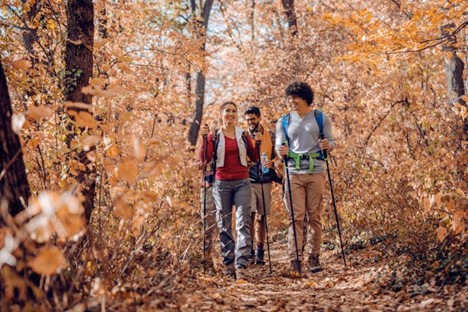
Adolescence can be a difficult and turbulent period of life. Fortunately, therapeutic programs designed for adolescents offer effective solutions to help teens navigate life’s unique challenges. Programs for troubled youth in Utah are integrating nature-based healing approaches like equine therapy alongside individual counseling, group therapy, and family therapy. By combining these healing strategies, residential programs create a holistic and empowering environment that supports adolescent recovery and growth.
Adolescents face a range of challenges during their development, including emotional distress, identity struggles, academic pressure, family conflict, and peer pressure. For some, these difficulties may escalate into mental health issues such as anxiety, depression, substance abuse, or trauma-related disorders. These issues may cause teens to feel overwhelmed, isolated, and unable to manage their emotions or behaviors effectively.
Therapeutic programs provide a safe, structured environment where teens can engage in healing interventions aimed at improving their mental health, emotional regulation, and interpersonal relationships. Residential programs offer a stable, distraction-free environment that fosters healing and growth.
By addressing the underlying causes of a person’s struggles and providing opportunities for emotional expression and self-reflection, these programs empower adolescents to take control of their lives and develop healthier coping strategies.
One of the most impactful trends in adolescent therapeutic programs is the use of nature-based healing. Spending time outdoors and engaging in activities that connect teens to the natural world can have a profound positive effect on their mental and emotional well-being. Research has shown that exposure to nature can reduce stress, enhance mood, improve focus, and foster creativity. For adolescents facing mental health challenges, this connection to nature provides both a therapeutic outlet and a means of emotional restoration.
Nature-based therapy takes many forms, from guided outdoor activities to experiential learning in natural settings. These experiences encourage teens to engage with the environment in ways that build self-awareness, confidence, and resilience.
One of the most effective nature-based therapies for adolescents is equine-assisted therapy, which has garnered increasing popularity due to its unique approach to healing. With this modality, adolescents work with horses in a controlled setting under the guidance of a trained therapist. Horses are highly intuitive animals that respond to human emotions and behaviors in real-time, making them powerful partners in therapeutic work.
Equine-assisted therapy focuses on building trust, improving communication, and developing emotional regulation skills. This gives the handler a direct experience of how their emotional state is influencing their surroundings.
Working with horses teaches adolescents valuable skills, such as:
Emotional awareness: Teens become more attuned to their emotions and learn to manage them effectively, as horses require calmness, patience, and clarity to be handled successfully.
Building trust: Developing a relationship with a horse involves building trust and understanding. This process helps teens improve their ability to trust others, an essential skill for overcoming interpersonal difficulties.
Non-verbal communication: Horses communicate through body language, so teens must learn to interpret non-verbal cues and express themselves in non-verbal ways. This enhances the adolescent’s communication skills in social situations.
Responsibility: Caring for a horse requires discipline, consistency, and follow-through. These responsibilities foster a sense of accomplishment and self-worth in adolescents.
The immediate feedback offered by equine therapy creates a powerful and transformative experience for teens, as they see how their behavior and emotions affect the horses and, by extension, their relationships with others.
For teens struggling with isolation, anxiety, or social difficulties, group therapy provides a supportive setting in which they can connect with peers who are going through similar experiences. Group therapy encourages open communication, empathy, and understanding, helping adolescents recognize that they are not alone in their struggles.
Through group therapy, adolescents learn valuable social skills, including active listening, conflict resolution, and effective communication. By observing and interacting with peers, adolescents can learn new perspectives, share coping strategies, and build stronger interpersonal skills.
For adolescents who have felt disconnected or rejected by others, group therapy fosters empathy and camaraderie, allowing them to develop healthy relationships with their peers. This social support network is invaluable for teens as they transition back to their communities and engage in daily life after completing the program.
Family therapy is a key component of the healing process, as it aims to address any dysfunction within the family unit and create a more supportive, healthy environment for the adolescent’s growth.
Family therapy allows the adolescent and their family members to discuss concerns, work through conflicts, and rebuild trust. It provides a safe space for family members to express their feelings, understand each other’s perspectives, and work collaboratively toward positive change. It also helps parents or guardians develop the skills and strategies needed to support their adolescent’s mental health and well-being. Through education and coaching, family members learn how to communicate more effectively, set healthy boundaries, and provide emotional support in ways that empower the teen.

When therapeutic programs offer many benefits, including:
Enhanced emotional regulation: Through a combination of therapy and nature-based interventions, adolescents learn how to better understand and manage their emotions, improving their overall emotional well-being.
Increased self-esteem: Teens gain confidence through their experiences with horses, their participation in group therapy, and the accomplishments they achieve in the program.
Improved communication skills: Adolescents develop their ability to communicate effectively, both verbally and non-verbally, leading to healthier social interactions and relationships.
Better coping strategies: Nature-based therapies and traditional interventions equip teens with tools to handle stress, anxiety, and difficult emotions, enabling them to cope more effectively with life’s challenges.
A sense of purpose and responsibility: Caring for animals, working in nature, and developing strong relationships with peers and family members help teens rediscover a sense of purpose and accountability in their lives.
Therapeutic programs that incorporate nature-based healing approaches, such as equine-assisted therapy, offer invaluable support for adolescents facing emotional or behavioral challenges. These programs provide teens with the opportunity to build trust, improve communication skills, regulate their emotions, and develop healthier coping strategies - all in a safe, structured environment. By offering a holistic approach that combines traditional therapies like group and family counseling with experiential therapies, these programs empower adolescents to rebuild their lives and grow into confident, resilient young adults.
Whether through the connection with horses or the supportive relationships built during group therapy, nature-based healing creates lasting change for adolescents. These programs provide a nurturing environment in which teens can develop the skills and emotional resilience necessary for a bright, healthy future.